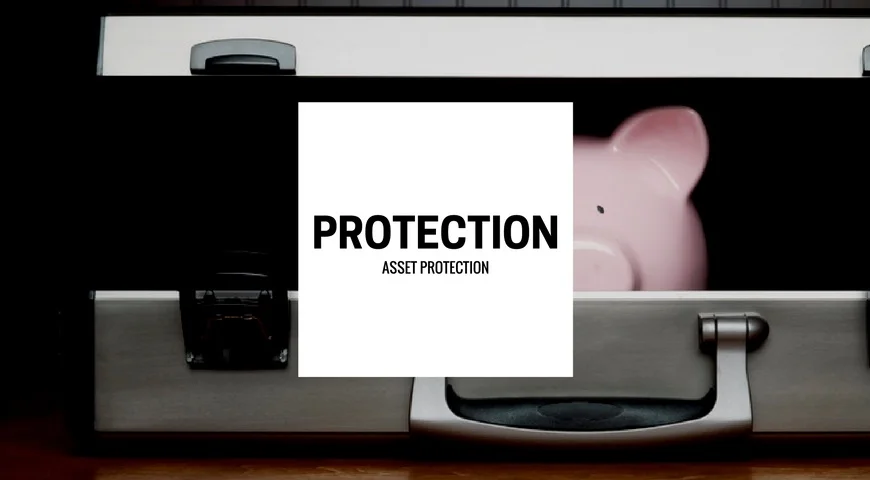
What You Need To Know About Asset Protection Today
It is important to know what international asset protection is and what it is not.
A properly constructed asset protection plan places a portion of your net worth behind multiple barriers…the more barriers, the greater the protection. It allows you to level the litigation playing field and move out of the creditor-friendly United States and into a defendant-friendly jurisdiction. It makes you a hard target, which may eliminate the case altogether or, at your option, put you in a better bargaining position.
Asset Protection DOES NOT:
- Help you escape your current or reasonably foreseeable future creditors. You should not transfer assets out of the United States to avoid a current creditor, as this may be a fraudulent conveyance.
- Reduce or eliminate your U.S. tax obligations. You (assuming you are a U.S. citizen and settlor of the trust) must report your international trust, international bank accounts, and pay taxes on the gains in your trust to the U.S. IRS. U.S. citizens are taxed on their worldwide income, including income earned inside any offshore trust.
- Allow you to hide assets. Asset protection is not based on secrecy; it is founded upon putting up barriers to collection. Even if your creditor had a detailed roadmap of your structure, he should not be able to reach the underlying assets.
- Work well with U.S. real estate. The offshore trust is best suited for offshore bank and brokerage accounts. U.S. courts have jurisdiction over U.S. real estate and can simply ignore a trust and demand seizure of the property. In theory, it is possible to hold titles for domestic real estate in a Nevis LLC owned by a trust, but that domestic real estate asset should be liquidated and the funds moved offshore in the event of legal duress. And doing so would expose you to significant tax consequences in the United States. Thus, it is best to place international assets in an international trust.
- Offer a total solution to estate planning. The international trust will facilitate transfer of international assets upon death, but should be used with a complete estate plan that is compliant with your home countries estate and tax codes.
Protecting Assets Today And For The Future
To protect oneself and ones assets in the coming years, take the following steps while you are still able:
Open at least two bank or brokerage accounts in different jurisdictions outside of the U.S. If one account becomes temporarily frozen you will still be able to access some of your wealth.
See more about offshore banking.
Diversify a portion of those assets away from the dollar. Clients differ on what level of diversification is prudent and it ranges from 10% to 100% of non-dollar diversification.
Consider currencies that can easily access alternate payment systems, including the British pound, Australian dollar, and Chinese renminbi.
Place a portion of your wealth in precious metals including, gold, silver, and platinum which should be in bullion or coin form and not in electronic representations of those metals.
Acquire foreign real estate to protect wealth, generate cash flow, or to simply secure a “nest egg” outside of the United States.
See more about international real estate.
Acquire residency or citizenship in another country. This will frequently enable the opening of bank and financial accounts in that country particularly if the country does not permit its banks to open accounts for non-residents. More and more offshore financial centers are imposing a residency test as a condition to open a bank account.
Maintain several months of “cash” outside of the banking system. This should be in your home or a non-bank private vault facility.
Observe compliance with all tax and regulatory requirements.
See more about staying compliant.
Taking these steps now is important to you and your family’s long term wealth preservation. But just as you commit to taking these actions, make sure you also commit to taking the action necessary to remain compliant with U.S. laws and regulations, especially the rules concerning the FBAR and Form 8938 which have serious civil and criminal penalties for failure to comply. If you are not prepared to remain compliant with the growing body of U.S. laws and regulations pertaining to offshore bank accounts as well as other foreign financial assets, then by all means do not maintain assets abroad, but simply diversify your assets as best you can without the use of a foreign financial account.
The transparent nature of the global financial system particularly as the new FATCA regime goes into effect will ensure that the IRS will know your offshore banking business whether you disclose it to them directly or not. So, protect your assets by using the global banking system to your advantage, diversify those assets, protect them, and disclose what you have done to remain compliant with U.S. law. While it is a tightrope, it is one that must be traversed to both protect your wealth and stay out of the crosshairs of the IRS.



